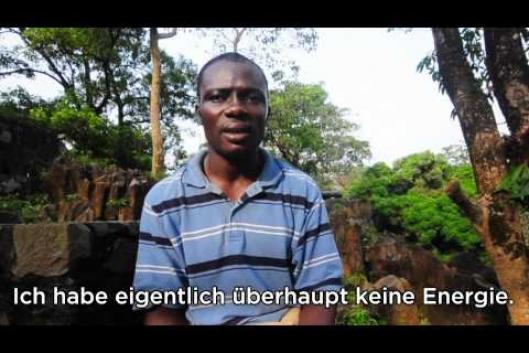What can we expect from the 17th Conference of the Parties to the UN Framework Convention on Climate Change in Durban?
Issue 172 – November 2011
OUR VIEWPOINT
CLIMATE BUSINESS
-
30 November 2011Since time immemorial, human beings have used biomass to produce energy in a sustainable way. In the meantime, industrialization is exhausting the world's reserves of fossil fuels, leading to the frenetic search for other sources of energy. One of these is bioenergy, based on the production of energy from living matter, or biomass. Biomass is organic material such as trees, shrubs, grasses, grains, algae, microbes and also plant residues.
-
30 November 2011The Swedish state-owned multinational Vattenfall is Europe's fifth largest energy producer. Its affiliate Vattenfall Europe, based in Berlin, is one of the four biggest companies in the German energy market. Vattenfall's energy production there is primarily fuelled by coal (65%) – it has its own lignite mines in east Germany – and uranium (26%). But the company has also branched out into the use of supposedly “clean” energy sources, like wood.
-
30 November 2011A new expansion cycle: carbon and biomass plantations
-
30 November 2011Last month, I was in Bangkok for a meeting about carbon markets in southeast Asia. It was ironic to be discussing a false solution to climate change when large areas of Thailand were underwater and floods were threatening the capital. (While we cannot say that this particular flood was caused by climate change, we can say that this type of flood will become more common as the planet continues to warm.)
-
30 November 2011Next week an international farmers' conference will take place in Mali to stop land grabbing. Organized by La Via Campesina, it is aimed at opening a space to listen to and learn from local peasants, mainly from African countries, on what they have to say about land grabbing and to unite forces to resist the process and build future strategies. A few days after, in Durban, South Africa, thousands of people representing governments, the big polluting companies and big conservation NGOs, but also people struggling for climate justice, will meet for the 17th Conference of the Parties to the UN Framework Convention on Climate Change (UNFCCC).
-
30 November 2011The state of Acre, in the Brazilian Amazon region, earned worldwide attention in the late 1980s through the struggle for social and environmental justice waged by the late Chico Mendes. In more recent years, the state has once again gained prominence in Brazil and internationally, but for very different reasons. This time the spotlight on the state is a result of the propaganda around the “green” development model promoted through “forest governance” and based on the so-called “sustainable management” of the forests and the sale of environmental services. Today the state is portrayed as a “green” success story.
-
30 November 2011The new abstractions created by the climate change discourse in the form of REDD and REDD+ have come to deepen the commodification of forests as greater mobility is created and trading across countries and continents is made possible through climate mitigation and forestry schemes, say Kanchi Kohli and Manju Menon from the Indian organization Kalpavriksh, in the recent publication “Banking on Forests: Assets for a Climate Cure?”
PEOPLE IN ACTION
-
30 November 2011On last 21 September - the World Day against Monoculture Tree Plantations - the “No REDD Platform”, a coalition of environmental groups and Indigenous peoples organizations, launched a call to the international donor community to halt the diversion of forest conservation funding to REDD+-type projects and related activities, while also noting that the ´detection, documentation and rejection of the negative social and environmental impacts of REDD+ projects´ suffer from a lack of support. The letter aims to be a wakeup call to funders as well as an invitation to bridge this funding gap
-
30 November 2011On 10 November, indigenous peoples and farmer communities with people' s organization ALDAW gathered in Brooke's Point city, in the island of Palawan, to peacefully demonstrate against the visit of Chinese investors of the Jinchuan Group (JNMC). The Chinese group has already established partnership with MacroAsia Corporation for the exploitation and extraction of nickel. The mining project encroaches on the ancestral domain of IPs and farmer communities as well as on community conserved areas and would have a serious impact on farmlands, watersheds, primary/secondary forest on which those peoples depend, since time immemorial, for their livelihood and cultural sustenance.
-
30 November 2011In Cambodia, some 200,000 mostly Indigenous Kuy villagers are desperately trying to prevent the destruction of Prey Lang (“Our Forest), the last large primary forest of its kind on the Indochina peninsula. The Cambodian government has issued a patchwork of concessions to road builders, mining companies, and agro-industries. Bulldozers are slashing the forest to build new roads, rubber plantations, and mines.
-
30 November 2011On the first week of November, International Rivers launched an international petition calling on the Prime Ministers of Laos and Thailand to cancel plans to build the Xayaburi Dam. They expect to collect as many signatures as possible to help add pressure on these governments before the upcoming Mekong River Commission Council meeting that will take place from next December 7-9th. You can help circulating the petition to your list-serves and placing a link to it on your websites. The petition can be found athttp://salsa.democracyinaction.org/o/2486/p/dia/action/public/?action_KEY=8547

